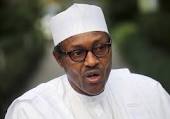“When Barack Obama took office in January 2009, he had an unprecedented chance to do what no other recent president could: seize the nation’s financial reins from the corporate elite and return them to the American people. Progressives everywhere held out hope that their new leader would take advantage of the economic crisis he stepped into and enact bold policies that would evoke real financial reforms – putting Main Street in front of Wall Street, at last. But that is not the way things turned out. Instead, America’s best chance for radical financial reform turned into Wall Street’s greatest victory”
Robert Kuttner in his book, whose title I have borrowed for dramatic license, chronicles the disaster that nearly befell the Obama presidency in its early days. These words could easily apply to the victory that General Buhari, the incoming president of the Federal Republic of Nigeria can rightly claim. Already the rumours have begun. This name and that personality have been penciled down for Minister, Special Adviser, Director-General and cabinet member. There is palpable fear that the Lagos wing of the APC will dominate the appointments. That Bola Tinubu will outmanoeuvre and frustrate the Katsina mafia who already have designs on the presidency. Much of this material is and will be deliberately planted in the media to promote certain individuals or interests and must be discounted. Already there is talk that the first 100 days programme has been concluded and how the president will solve specific problems in that period. The low hanging fruit, so to speak.
I have a somewhat different prescription. I start from the premise that the first 100 days is not a period for projects or tackling corruption – the gorilla in the room – but a time for reflection and foundation laying. It is true that the incoming administration must hit the ground running, which expression can mean several things depending on how high up the intellectual ladder you wish to go. Foundations in this instance begin with the transition committee – the men and women who will shake hands with the outgoing regime while designing the early agenda of the president and the new regime. A proto-cabinet, which will manage the president’s and vice-president’s engagements, and oversee the several technical subcommittees offering ideas on everything from power to health and education. Some of this group may even end up in the cabinet or running agencies in the future, as rightly they should, but the focus has got to be on foundational issues. Crosscutting philosophical issues consistent with the change that the campaign promised. How to reframe the campaign promises in the cold light of reality. A reality, which speaks of an empty treasury, fifty-dollar-a-barrel oil revenue, a crippling debt portfolio, a dysfunction civil service and a venal incompetent national assembly whose exclusive concern is their own welfare.
The temptation, as with most people, will be to go for “trusted hands”. Safe and experienced hands. Mr. President-elect please bear in mind that these safe and trusted hands are the same which brought us to this sorry passé. These safe and trusted hands, their surrogates and other grandees are not the vectors of change, at least not the radical departure from business-as-usual that Nigerians are hoping for. You must recognise sir that a total different skills set is required to tackle the challenges ahead than those it took to win the elections. Perhaps a profile of the sort of persons we expect to see in the change team will be helpful. Your dream transition team would be made up of:
• Nigerian Professionals with a minimum of 20 years work experience;
• Not older than 65 yrs;
• Some familiarity with or experience government would be helpful;
• Crosscutting knowledge of various sectors of the economy;
• A sound understanding of or background in public policy;
• A capacity for research;
• Demonstrated ability to think out of the box;
• A clear commitment to an anti-corruption agenda
Few Nigerians meet all the criteria above, but this is a game for the few. To the best of my knowledge, unlike the United States, Nigeria does not have a law guiding the transition process, which is a major oversight. The US law, “The Presidential Transition Act of 2000 (P.L. 106-293).[12][13] The Act as amended directs the Administrator of General Services to provide facilities, funding of approximately five million dollars, access to government services, and support for a transition team, and to provide training and orientation of new government personnel and other procedures to ensure an orderly transition”… is worthy of emulation with its emphasis on training for the members of the transition team. Clearly this is serious work and no place for protocol and formality, neither is it a place for reverence of the aged or social pedigree (my Lords temporal and spiritual).
At the end of the transition period, however it is defined (first 100 days, may till August), the committee’s recommendations will still be subject to a political filter so the political parties and politicians need not feel left out. I hope the members of the transition team, who ever they may be, do not throw the baby and the bath water out, that they will ferret out the good work done by the Jonathan administration, however limited, while having the courage to chart new paths.
What Mr. Obama did not realise, according to Kuttner, was that his transition team was seeded with special interests whose agenda was to preserve the status quo and others sympathetic to the agenda of the outgoing administration. A cautionary tale for the Nigerian president-elect.
True seismic Change is only possible at punctuations moments. This is for Nigeria one such moment. Mr. President-elect, give us a sign.
Folarin Gbadebo-Smith is Managing Director, Centre for Public Policy Alternatives, Lagos.



Be the first to comment